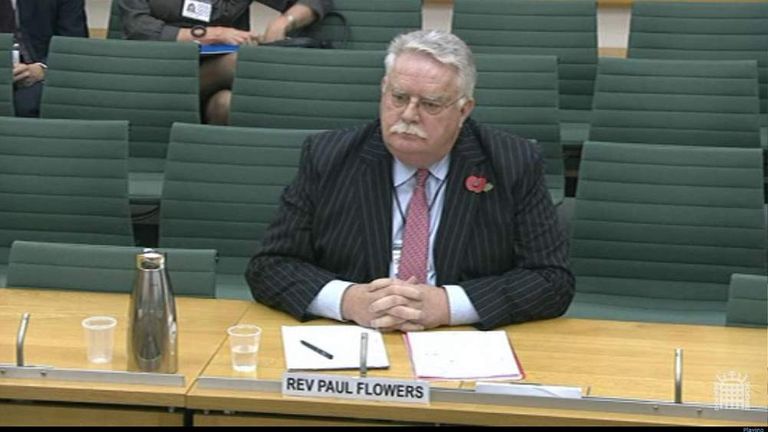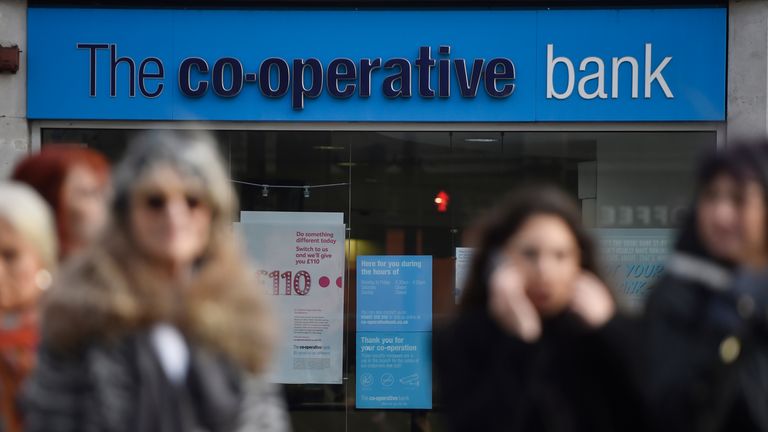The Co-op Bank is back on an even keel after getting to grip with its costs
Few businesses suffered a more painful or humiliating aftermath to the financial crisis than the Co-operative Bank.
The lender opportunistically pounced in 2009 to merge with Britannia Building Society.
It was effectively a takeover of the latter but the deal, which had required a change in the law backed by Gordon Brown’s Labour government, proved catastrophic.
The bank, which had traded perfectly happily for more than a century prior to the deal, came close to collapse, dragged down by a combination of payment protection insurance mis-selling payouts, a botched IT project and, worst of all, an £802m hit on Britannia’s commercial property loan book.
A £1.5bn black hole in the bank’s accounts was discovered that forced it, in April 2013, to pull out of a deal to buy 632 bank branches from Lloyds.
Later that year, the bank’s previous poor management was highlighted when its chairman from 2010 to June 2013, the Rev Paul Flowers, was humiliated during a Treasury Select Committee hearing, in which he revealed a lack of basic understanding of its balance sheet.
He was exposed in the Mail on Sunday a few days later for buying illegal drugs for himself and rent boys, including crystal meth, crack cocaine and ketamine, which earned him the nickname ‘The Crystal Methodist’ and for which he was subsequently arrested.
The bank was recapitalised to the tune of £1.5bn in November that year by a group of US hedge funds who effectively took control of the business. The bank’s ties to the Co-operative movement, meanwhile, were severed in 2017 when the group sold its remaining shares.
As memories of its near-death experience fade further into the memory, though, the bank has turned around its fortunes.
It has not been a straightforward process. Nick Slape, who stepped up from chief financial officer in October last year, was the bank’s sixth chief executive in a decade.
Yet there is little doubt that the Co-op Bank is back on an even keel.
It reported, on Friday, a pre-tax profit of £28.5m for the first nine months of the year. That compared with a loss of £68.1m in the same period last year. The lender has now been profitable in each of the last three quarters.
Co-op Bank did a further £1.1bn of gross mortgage lending in the quarter, taking the total so far in 2021 to £4.1bn, while evidence that the lender has got to grips with its costs came with news that these are now equal to 90% of its income.
The ratio was 113% in the same period a year ago. Its capital position, meanwhile, appears to be one of the most solid in the European banking industry.
Mr Slape told Sky News: “With the increased demand for mortgages, we’ve ramped up our capability and capacity, and that has meant we’ve a very strong pipeline which we’ve yet to see completely work its way into our balance sheet.”
Perhaps most interesting of all, though, is that this is a bank not content just to grow organically.
Armed with extra financial firepower, after the private equity firms JC Flowers and Bain Capital Credit acquired a minority stake earlier this year, it is looking to go out and do deals.
The bank recently – as first reported by Sky’s City Editor, Mark Kleinman – saw an offer to buy TSB rebuffed by Sabadell, the lender’s Spanish owner.
But Mr Slape, a former Lloyds Banking Group executive who also has worked at leading investment banks such as Merrill Lynch and Deutsche Bank, indicated that did not represent an end to Co-op Bank’s expansionary ambitions.
He went on: “We’ve just refreshed our strategy this summer from what was really the end of our turnaround, end of 2023 to 2026 – now that’s an organic plan and we’re very focused on that, but alongside that, we’ll always consider inorganic opportunities.
“So as this bank returns to profitability and organic capital generation, remember that we’ve got some pretty sophisticated key shareholders that are very happy with the bank’s progress and more than willing to put new capital into the business if the right opportunities appear.
“What attracted us is that there is a lot of similarity between TSB – the brand, the culture – and ourselves.
“One of the issues the mid-tier banks have is scale. We can do a lot on costs – and we’ve done a lot on costs and will continue to be focused on that – but you can’t keep cutting costs, you need to generate more income. This is a mid-tier bank with a £25bn balance sheet and a combination of ourselves and TSB, if it happened, would create a challenger with the order of £60bn – so not that dissimilar to Virgin Money.”
More mergers and acquisitions among the smaller UK banks would be a continuation of a process that began about three years ago and which, as evidenced by this week’s takeover approach to Metro Bank by the private equity firm Carlyle Group, may have further to run.
Co-op Bank itself is no stranger to takeover approaches from financial buyers. Just about the first thing Mr Slape had to do on becoming chief executive was negotiate with Cerberus, the US private equity firm, which had expressed an interest in buying the bank but which eventually walked away just before Christmas last year.
Given that backdrop and the turnaround underway at the Co-op Bank – which prides itself on being the only high street bank with a customer-led ethical policy giving customers a say in how their money is used – it would be no surprise if Cerberus or another financial buyer were to come forward.
But Mr Slape clearly sees the bank these days more as predator than prey.





